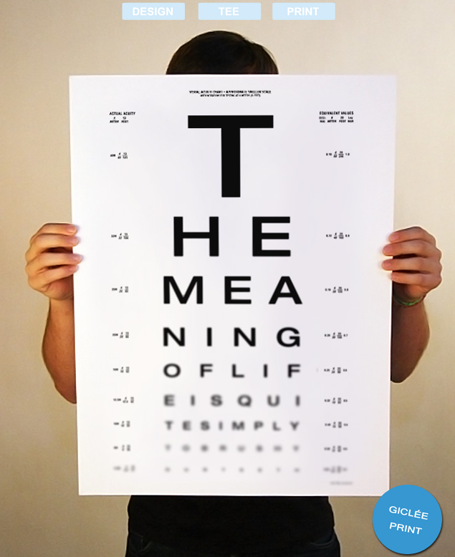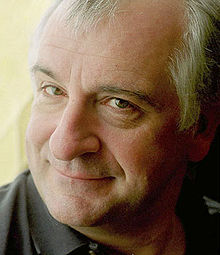 One day in 1967, Paul McCartney sat down at his dad’s piano at the family home in Liverpool, England and began playing variations on a D 6th chord. He played for about five minutes, back and forth, with no particular direction when he noticed a series of notes that seemed pleasing to him, and he repeated them a few times. As he thought about the repetition, his mind floated to a picture of an eastern mystic that he heard interviewed on TV some days before. The man seemed detached from the world around him, but he was perfectly fine with the world thinking his life was a disconnected waste. “The Fool on The Hill” became Paul McCartney’s major contribution to the Magical Mystery Tour, and it was written sitting at that piano. Later, McCartney played the tune and sang some of his impromptu wording for John Lennon. When Lennon told him to write the words down, McCartney shrugged and said, “I will remember them.” He opened the song with:
One day in 1967, Paul McCartney sat down at his dad’s piano at the family home in Liverpool, England and began playing variations on a D 6th chord. He played for about five minutes, back and forth, with no particular direction when he noticed a series of notes that seemed pleasing to him, and he repeated them a few times. As he thought about the repetition, his mind floated to a picture of an eastern mystic that he heard interviewed on TV some days before. The man seemed detached from the world around him, but he was perfectly fine with the world thinking his life was a disconnected waste. “The Fool on The Hill” became Paul McCartney’s major contribution to the Magical Mystery Tour, and it was written sitting at that piano. Later, McCartney played the tune and sang some of his impromptu wording for John Lennon. When Lennon told him to write the words down, McCartney shrugged and said, “I will remember them.” He opened the song with:
“Day after day, alone on the hill, the man with the foolish grin is keeping perfectly still. But nobody wants to know him, they can see that he’s just a fool. And he never gives an answer… But the fool on the hill sees the sun going down and the eyes in his head see the world spinning around…”
Was the mystic smart and ridiculed or dumb and disconnected? In the song, it is hard to tell. He may be wise but unwilling to communicate to those around him. A close look at the words of the song are bound to leave you unsure of what the songwriter’s intent.
Yet the picture lingers. Sadly, when we look about in the world, we see people who seem unaware of how foolish they appear to others. Becoming wise isn’t a simple matter for many of us. In fact, if there are two places we can easily stumble when it comes to wise living, they are where we receive counsel and how we develop proper patterns in life. Think about it…
First, we need to learn to accept counsel exclusively from reliable sources.
Much of “growing up” is learning who we can believe in! All of us have believed some report from the web that wasn’t factually true. If we did the really embarrassing thing, we passed it to others. The recent surge of issues regarding “fake news” demonstrates the most recent version of a constant battle between truth and rumor, slander and scoop. It is amazing to watch how many people will make decisions about crucial things based on an article they read or a report from social media – only to discover the whole thing is at least speculation and at worst downright fabrication.
For instance, have you noticed how many so-called “health products” have a low-toned voice disclaimer about how there is no actual representation to “make your health better” when that was the subject of the whole advertisement? I am amazed when they present a forty-five second commercial of how their product will surely make your life better and solve your health issue, and then have a fast speaking and low-toned voice tell you at the end of the ad that what you saw doesn’t actually represent any verified claim that the product can really help you at all!
Does following a claim by “shady sources” make you look foolish? It certainly can. Consider this story:
The New York Daily news reported on December 5, 2016, Edgar Maddison Welch, a 28-year-old man from North Carolina was arrested after he opened fire inside “Comet Ping Pong” in Washington D.C. The pizza restaurant was named in a “Reddit post” as the secret location of a child sex ring, run by then-candidate Hillary Clinton. After his arrest, Welch told police he decided to “self-investigate” whether the so-called “Pizza Gate” conspiracy theory was true — that Clinton and her campaign chief were operating the ring in the restaurant’s back room. He took a rifle and went to DC to check it out.
Getting information from unreliable and unconfirmed sources can be both embarrassing and dangerous.
In addition to this, there is another practice that separates the wise and the one who lacks wisdom…
Second, we must develop habits that work out successfully in the world.
It isn’t your imagination. Some people just can’t seem to “land on their feet” in life. They exert some effort to be successful, but they seem to keep failing, year after year. If you ask them, they aren’t really sure why, but they know something is wrong that is holding them back from becoming all they were meant to be. You see it in the worker that doesn’t seem to advance in the job. You detect it in the person who can’t seem to land the job in the first place. You see it in the person who seems constantly stirred but their expended energy doesn’t help them progress. Some will tell you honestly they don’t know what line they missed, but they feel they didn’t get some piece of instruction other people did. They aren’t trying to be wrong, but they need wisdom to identify their weaknesses and spot paths to successful living.
Solomon had much to say about wisdom, and nearly as much to say about foolishness. From the middle of the ninth and through the tenth chapter of Ecclesiastes, the wise king reminded us of the two skills developed by the wise…
Key Principle: Wise people learn two essential skills: how to discern good sources and how to develop successful habits.
Solomon opened with a view of “how to find proper sources for the truth” in 9:13-10:7.
Discerning Good Sources: Cautions about seeking counsel!
It is obvious to all of us that sometimes we need help finding direction. Since wrong counsel can lead to devastating consequences, Solomon offered some tips to keep in mind when seeking wise counsel. If Orson Wells radio experiment in “War of the Worlds” taught us anything long ago, it made clear that where we get our perceptions and our news can impact dramatically how we respond to life. Solomon opened with some words that may surprise some of you…
First, wisdom doesn’t always come from the place you would think to look for it.
For some reason, our prejudice has much to say about who we listen to – even when they don’t demonstrate a pattern of wisdom. He warned:
Ecclesiastes 9:13 Also this I came to see as wisdom under the sun, and it impressed me. 14 There was a small city with few men in it and a great king came to it, surrounded it and constructed large siege works against it. 15 But there was found in it a poor wise man and he delivered the city by his wisdom.
The scene was a small walled town surrounded by a large and well-resourced army. As the siege ramps were being constructed outside the wall to make holes and breaches in it, a small group of men gathered inside to weigh their options. The words of a poor man who was wise made sense to the leaders of the village, and they executed a plan based on his theory of negotiation. They were pleasantly surprised when the plan succeeded and peace came to the city. The point of the portion was to remind a student that people think they know who will offer the truth that delivers – but these men got it wrong. The poor man was wiser than the town councilmen. We must grow to understand that some attained success without any real knowledge of how it happened. They don’t have a formula – they simply were in the right place at the right time. When pressured to offer direction to you, they may be unable to do so. Just because someone has had success, does not mean they can instruct you on how to have success – apart from instructing you to follow God’s Word.
Second, when wise counsel comes from an unlikely place, it often isn’t always valued as it should be.
Solomon continued his words concerning the poor wise man with a sad note:
Ecclesiastes 9:15b “…Yet no one remembered that poor man. 16 So I said, “Wisdom is better than strength.” But the wisdom of the poor man is despised and his words are not heeded.
He may not look the part, but your dad may be a very wise man. Your mom might know what you really need to hear right now. They may have never been in leadership of a Fortune 500 company, but they very well may have pulled a family through a tough time and paid every debt created along the way. Just because the world doesn’t see them as particularly wise and recall their mammoth struggle to put food on the table and pay for your braces in Jr. High, doesn’t mean they aren’t champions at budgeting. Don’t forget the people who got you to where you are. Don’t overlook the sacrifices because your familiarity bred a heart of contempt for them. Look carefully at what people have done in their lives with what they have been given. If they had little but stretched it to cover the needs, they are perhaps wiser than the one who had much and struggled little. If they managed much, they probably can help you get organized.
Let’s face it: Our world places great value on people who can throw a ball and little value on a child care worker who holds a baby. We will pay enormous sums of money for those who can catch a pass, but are quite stingy when it comes to one who will care for our loved one in their last days, when they need constant help. My point: the value system of the world doesn’t reflect what is truly important. A wise men or woman learns to look carefully and remember those who have cared for you, taught you and helped you along the way. Don’t look past those who the world may not recognize, and again, don’t forget who helped you become the person you are.
Third, we must learn to listen carefully for wise counsel over the most pronounced voices.
Solomon discovered the loudest mouths were often attached to the smallest minds. He wrote:
Ecclesiastes 9:17 The words of the wise heard in quietness are better than the shouting of a ruler among fools.
There is a difference to being “in charge” of the room and being right in our opinion. Having authority placed upon us should humble us, not make us think we are automatically smarter than everyone else in the room. Just as I recognize Scripture teaches believers to respect authority, I must also recognize those of us who are in the position need to become wise enough to quiet down and listen to the other people. A shouting “ruler” (as Solomon put it) isn’t right because they are louder than all the other voices in the room.
A wise word leads us to act on truth. It must be heeded because of what it is – not because of the package in which it is presented. Many in our world are distracted and follow the flash and tinsel, but not the truth. Look past the package. Develop and ear to hear truth and wisdom whether it is presented well or not.
Fourth, never forget wrong counsel can do untold damage – and it doesn’t take much.
Wrong answers matter. Wrong directions can bring perilous consequences. The king wrote:
Ecclesiastes 9:18 Wisdom is better than weapons of war, but one sinner destroys much good. 10:1 Dead flies make a perfumer’s oil stink, so a little foolishness is weightier than wisdom and honor.
These sayings reinforce the “one bad apple will spoil the whole bunch” idea. In 9:18, Solomon made clear that wise living offered grand protections, but needed to be embraced for all to bring safety to a community. Think about it. One unwise fire builder in the forest imperils all the other campers. Time and again, Solomon will remind us that a community is only as strong as the least wise among it. Building the Great Wall of China would only keep out the Mongols until one gate keeper was bribed. All the effort of the Kingdom to protect itself from invasion was undermined by a single traitor. The saying isn’t to leave us in despair; it is a warning. We must educate and train those among us who are weak and underdeveloped in wisdom. Our young are idealistic, but often don’t have the experience to understand how a policy that clearly offers them help in the short run may not be best for the society in the long run. Parts of our nation have been deeply wounded by the behaviors of some students, and it appears they haven’t been offered wisdom to connect their ideals with practices that will build a strong society. It isn’t their fault as much as it is ours. We must raise them up in wisdom.
Not only can one bad soldier cause the downfall of the squad in the field of conflict, but a little foolishness mixed into otherwise wise planning can spoil results. You need to lock the back door as well as the front. That was the point of the first verse of chapter ten. It doesn’t take much poison to ruin the whole pot of stew. Wise is the society that watches what is put in the pot as its young are trained. We aren’t trying to be uncooperative, but we cannot and must not allow an agenda of social experimentation to infect the education of our young. It has devastating consequences. Let me offer an illustration if I may.
Children mimic what they see at home, both on media and in the behaviors of those in charge. If there is no respect for authority developed in the home, but rights are constantly echoed, the child will have little regard for those in whom enforcement of the law has been placed. They will learn little in regard to personal property. They will see the values of peaceful protest and turn them into a destructive riot – while actually believing they are both exercising their rights and helping their community. They will harm others and destroy property while believing they are being heroic and helpful. Respect must be taught. Boundaries are a learned idea. When someone feels they have the right to destroy my automobile because they have encountered injustice by the local police, they are simply wrong. When that idea is allowed to fester, they will begin to believe violence is a practical tool. I have lived and worked with people who thought the violent bombing and destruction of a bus of school children was a legitimate form of protest. It is not. It is murder and mayhem – and we must teach that your rights stop at my nose. You don’t have the right to hurt people or property that is not yours to make a point no matter how valid your point may be. Children must be taught that sometimes how you argue erodes and even invalidates the point you are trying to make. That is wise instruction.
Fifth, recognize there will be choices and watch the path of the would-be counselor before taking their advice.
Solomon encouraged seeking mentors, but warned to watch them before accepting them in that role. He wrote:
Ecclesiastes 10:2 A wise man’s heart directs him toward the right, but the foolish man’s heart directs him toward the left. 3 Even when the fool walks along the road, his sense is lacking and he demonstrates to everyone that he is a fool.
Verse two isn’t political; though in our current day it may seem like it can be obviously applied that way. In Solomon’s day, “left” and “right” weren’t code words for liberal and conservative. The point he made was simpler: Fools choose a path different than wisdom directs. Wise people are called to live differently than the accepted foolishness around them. Solomon noted that if one looks closely, they can spot the fool.
Look at verse three and ask this question: How did Solomon indicate I could tell a fool? The answer is this: Watch the path they walk upon, the direction they take, and the way they walk it. In other words, if you would receive counsel from them, look at the way they have lived. The longer I live, the more I see it. There are those who are wise and quiet. There are those who are foolish and loud. There are those who are ready to pass wisdom to me, but have no evidence their path of wisdom has been applied to their own walk – at least not for very long.
I want to take advice of health from someone who is healthy. I want to take my advice on work from one who has a long track record of working diligently. I want to take my counsel on marriage from someone who demonstrates they have a good one over the long haul. Degrees mean you have encountered information in a theoretical form for a specific duration of time. They don’t guarantee that I can apply truth any more than reading a recipe makes me a chef. Look for people who have lived in a way you seek life to go. Watch their walk before you accept their talk. That is wisdom at work.
Sixth, choose positions carefully and prepare to hold your ground thoughtfully when challenged.
Solomon wrote it this way:
Ecclesiastes 10:4 If the ruler’s temper rises against you, do not abandon your position, because composure allays great offenses.
Don’t be defensive and loud, but rather confident because you chose your positions well. Don’t abandon your moral post because it makes the person in charge upset. Calmly stay by the values you have thoughtfully formed. The results of bringing a testimony of truth and solid values into a meeting will diminished rapidly if you abandon your positions when challenged. Learn truth. Accept it. Stand by it. When those who have power test your resolve, stand by what you know to be true with kindness and confidence.
Every now and then in a class I test this idea. I will ask a question, and a student will raise their hand and offer an excellent answer. From every angle, what they answered was correct. Yet, if my facial expression changes as though what they said is somehow painful, many will back off their answer to try to please me as their teacher. Solomon argued that we should so carefully form our positions in wisdom, that we are prepared to stand by them when they are tested.
Seventh, don’t be surprised to learn that titles don’t tell the whole story.
Live for a while on the planet, and what Solomon wrote next will become painfully obvious. He wrote:
Ecclesiastes 10:5 There is an evil I have seen under the sun, like an error which goes forth from the ruler— 6 folly is set in many exalted places while rich men sit in humble places. 7 I have seen slaves riding on horses and princes walking like slaves on the land.
Solomon noticed two things: Not everyone who has the position is in the right place and not everyone who lacks position is undeserving of a great position. I have worked in many places, but I have noticed something that may be true where you work. Often in the office there is a boss who depends heavily on a worker. In that same office, many of the workers could leave and little would be affected by their absence. Yet, there is one person, often a low-ranking clerk of some sort who carries the office on their shoulders. They can find what no one else can. They know all the little idiosyncrasies of the machines and can make them all work when needed. They understand the computers, the printer and know where the relevant files are kept. They may not be in charge, but they effectively run the place. When they aren’t available to help everyone, the whole work place slows progress.
The point is that titles don’t tell the whole story. Many who work hard and keep things running aren’t the ones with the titles at all. They know the work, they do the work – but another is placed in charge of the work. In my own work, much of what is essential to getting things done is performed by others around me. I am responsible, and I am affirmed when it goes well, but I am often not in the room when the real labor occurred.
All seven ideas we just reviewed teach one idea: Wisdom must be learned, but we must carefully select the sources from which we accept that learning. That will help us bypass one of the two great pitfalls that lead to a wise life. There is a second. When I discover the proper places to source wisdom, I must learn to adapt my life to conform to what I learn. Solomon would say it this way: “You must develop wise habits”.
Developing Good Habits: Wise Words for Successful Workers!
The first habit Solomon mentioned has become the mantra of many shops and factories. It is this:
Safety first!
Ecclesiastes 10:8 He who digs a pit may fall into it, and a serpent may bite him who breaks through a wall. 9 He who quarries stones may be hurt by them, and he who splits logs may be endangered by them.
The fundamental habit we must teach to our young as they begin to drive / work/ play/ is this: pay attention to what you are doing. Distraction can kill you. Leave the text until you stop the drive. Learn to work cautiously and be careful to look at the dangers of the task. Youthful exuberance can easily lead one to believe that sheer power will overcome all obstacles. It won’t. Careful use of resources and power will keep you from harm.
The other night I at a friends and we watched a few minutes of one of the reality shows that place people in ridiculously harsh environments as they practically kill themselves to win a prize, or simply to prove to themselves they can survive no matter what apocalypse may come upon them. The young man was collecting fire wood, but had no tools to chop it to size. He decided to take a boulder and hurl it at the wood placed at an angle against a rock. If never occurred to the young man that hurling a rock in close proximity may not work. The rock may bounce back and hit you. The branch may break and part of it will spring upward toward you. He tossed the boulder with great force and got a face full of wood smacking him in the forehead. Fortunately, all he hurt was his head, but that didn’t seem to be working very well even before… so there was little loss. Not to sound cruel, but it is hard to underestimate how little some people think before they do something that will definitely leave a mark.
Second, prepare your tools!
Wise people work on the tools before they work on the job. Solomon wrote:
Ecclesiastes 10:10 If the axe is dull and he does not sharpen its edge, then he must exert more strength. Wisdom has the advantage of giving success.
It always feels like if you don’t plunge in, you are wasting time. That isn’t true. Solomon would tell you to get the right tools and prepare them well for the work you are about to do. Probably referring to this text, some historians quip that Abraham Lincoln once put it this way: “If I had eight hours to chop down a tree, I’d spend six of them sharpening my axe”! (From My Study Windows by James Russell Lowell (Professor of Belles-Lettres in Harvard College), Section: Abraham Lincoln: 1864, Page 166, James R. Osgood and Company, Boston, Massachusetts. (Google Books Full View).
It is a simple picture: a man who wants to chop down a tree reads in Ecclesiastes 9:10 to “Do it with all your might!” As a result, he grabs his axe, finds a tree and begins to hack and wack away. Preparation would have saved his arms and increased his efforts. Ecclesiastes warns against taking simple wisdom of a Proverb and thinking in a superficial way while failing to see how complex and difficult life can be. The Bible isn’t a single verse, but many blended, some that balance others. This is such a verse.
I read one day that painting professionals realize the importance of surface preparation in achieving maximum paint performance. Most paint coating failures can be directly attributed to inadequate surface preparation which affects coating adhesion. When you want to get the paint flowing, the most important thing is to keep the can closed and prepare the surface.
When I was in school, back in the dark ages just after the wheel was invented, I had to take classes in both Greek and Hebrew. When I was doing that, I ended up thinking what MOST students think part way through the process. I thought I was wasting precious time. “How will this help me reach lost people?” I would ask myself. The answer comes from Solomon: “You are sharpening the axe. In the end this will save me time not waste it.” I will never rise to be great language scholar (although I continue to work on my English!) but gaining facility in the languages has enabled me to follow commentaries and make your own decisions about whether versions are right or wrong. The tree falls more easily because the axe was forcibly sharpened by my professors.
Remember this: Truth is never invented; it is only discovered. Discovery takes time. If God revealed it, chances are good that somebody else in the church history has seen it before. If you will take the time to work at preparation, learning and discovery – joy will come in the easier work.
Third…Practice, Practice, Practice!
Solomon told us what we heard in little league. You won’t hit the ball unless you practice. Unpracticed players embarrass themselves. He wrote:
Ecclesiastes 10:11 If the serpent bites before being charmed, there is no profit for the charmer.
A snake charmer is only impressive when the snake follows the script. Practice of the craft helps avoid the embarrassment and loss that comes with the snake doing what is natural and not what is practiced. The Bible calls believers to DO, not just to KNOW.
Let’s be honest: We only truly believe the commands of the Bible that we actually practice. We can easily claim, “We believe in witnessing.” The obvious question is this: Do you intentionally share Christ with people? If not, I would submit you either don’t really believe in it, you don’t recognize the lost-ness of those without Christ, or you just don’t care all that much about other people and their plight. Our problem, when we look honestly at it, is often that we know far more than we do and we teach people to know more that we teach them to apply what they know in practice. Filling notebooks with Bible insights isn’t the objective. Thinking that writing things down is the point is a mistake. The truth is you don’t judge an army by how soldiers sit in the mess hall and eat. The real judgment is made based on how the army performs in battle against the foe.
Fourth, don’t speak or act like you know what you don’t!
Now Solomon offered another caution that should become our wise practice:
Ecclesiastes 10:12 Words from the mouth of a wise man are gracious, while the lips of a fool consume him; 13 the beginning of his talking is folly and the end of it is wicked madness. 14 Yet the fool multiplies words. No man knows what will happen, and who can tell him what will come after him?
He offered this thought: A few helpful words are better than long predictions and detailed guesses. Beloved, we need great thinkers who work through deep thinking – but not all of us are that deep.
Each generation needs its C. S. Lewises and J. R. R. Tolkiens, and G. K. Chestertons, its Blaise Pascals but they are rare among us and always were. Be careful not to try to sound like you are, if you are not. The wisest people I know are unafraid to admit what they don’t know. Know what you know, but know what you don’t. That is a good habit. When you hear these words: “Somebody will have to teach me about this, I just don’t know,” you are hearing wisdom.
Fifth, be careful with your resources.
Don’t waste what you have been given – you may need it. He wrote:
Ecclesiastes 10:15 The toil of a fool so wearies him that he does not even know how to go to a city. 16 Woe to you, O land, whose king is a lad and whose princes feast in the morning. 17 Blessed are you, O land, whose king is of nobility and whose princes eat at the appropriate time—for strength and not for drunkenness.
With time on the planet, the young grow old – and some grow wise. You can note wisdom when you see someone who learned to conserve their energy for doing something important. Immature people blow through resources without thinking ahead, always believing more resources will come. Solomon would say this: “Don’t!”
Sixth, plan time to maintain and manage things.
Gaining something is one thing; keeping it is another. Solomon noted:
Ecclesiastes 10:18 Through indolence the rafters sag, and through slackness the house leaks. 19 Men prepare a meal for enjoyment, and wine makes life merry, and money is the answer to everything.
Everything you own takes maintenance. Every relationship does as well. Preparation and maintenance may not be glitzy, but it keeps the roof from leaking on your dessert at the table! If you want to have a great life, take time to maintain what is important.
Seventh, watch your mouth about those in charge.
Solomon began with learning who to trust, and he ends with learning who NOT to trust. He wrote:
Ecclesiastes 10:20 Furthermore, in your bedchamber do not curse a king, and in your sleeping rooms do not curse a rich man, for a bird of the heavens will carry the sound and the winged creature will make the matter known.
We get the saying: “A little birdie told me” from this verse. Respect isn’t a put up job – you need to cultivate it even when you think no one is listening. It will show eventually. Learn to respect those in authority. Don’t just put it on – do it as a matter of your own heart.
It is fine to disagree with those who lead us, but don’t confuse your opinion with real conviction. They are not the same thing. Opinions are things you argue about; convictions are things you are willing to die for. Our world needs men and women of godly, biblical convictions who refuse to waste their voice on matters of opinion. Throughout history, people who have had the greatest impact for God were not the most knowledgeable, nor the most talented, but rather those who stood unapologetically for conviction rooted squarely in the Word.
Wise people learn two essential skills: how to discern good sources and how to develop successful habits.
Mary Bartels wrote this years ago in Guideposts: Recently I was visiting a friend who has a greenhouse. As she showed me her flowers, we came to the most beautiful one of all, a golden chrysanthemum, bursting with blooms. But to my great surprise, it was growing in an old dented, rusty bucket. I thought to myself, If this were my plant, I’d put it in the loveliest container I had!” My friend changed my mind. “I ran short of pots,” she explained, “and knowing how beautiful this one would be, I thought it wouldn’t mind starting out in this old pail. It’s just for a little while, till I can put it out in the garden.”- Mary Bartels Bray, reprinted from Guideposts, June 1965.
I wonder if that is you. You were planted here in an old tin of a body, but your beauty is just beginning to show. Wisdom is living out God’s truth. If you do it well, the beauty of the Designer will show through!




















